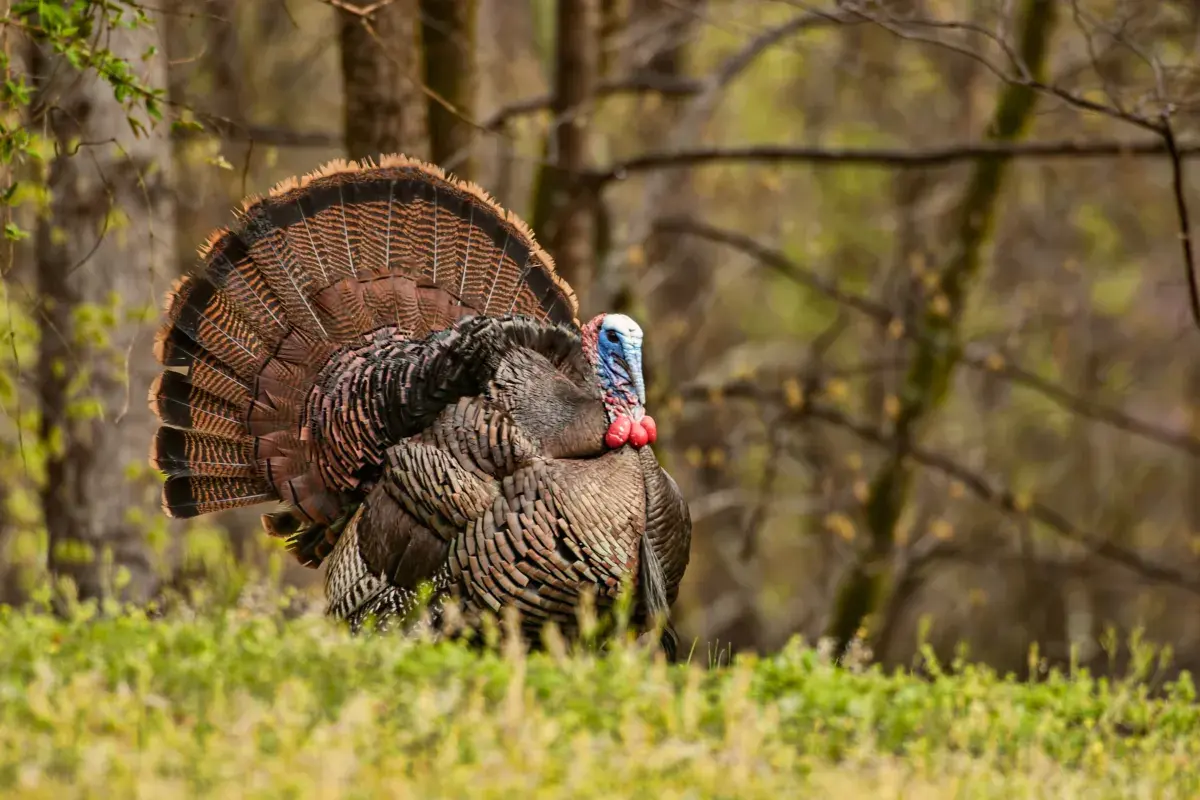Copyright Newsweek

Hunters across central Maine are being warned not to consume any wild turkey shot in certain townships, as the game could be contaminated by "forever chemicals," officials from the Maine Department of Inland Fisheries and Wildlife (MDIFW) warned. Newsweek reached out to the MDIFW be email for comment. Why It Matters As families across the country prepare for Thanksgiving, state officials in Maine have expanded the "Do Not Eat" advisory for wild deer and turkey to additional areas due to contamination from per- and polyfluoroalkyl substances (PFAS). This move aims to protect public health by warning thousands of hunters and consumers about potential exposure to substances known to raise the risk of cancer and other serious health issues. With wild game a staple for many holiday meals, the advisory underscores ongoing environmental and food safety concerns linked to PFAS—often called "forever chemicals" because of the long time it takes the chemicals to break down. What To Know The MDIFW together with the Department of Health and Human Services’ Maine Center for Disease Control and Prevention (Maine CDC), has expanded its "Do Not Eat Wildlife Consumption" advisory to include new sections of Knox, Thorndike and Unity. These areas join previously identified advisory regions covering parts of Fairfield, Skowhegan, Unity, Unity Township, Albion, Freedom, Knox and Thorndike. This new advisory follows recent testing in eastern Kennebec and western Waldo counties, which showed that deer and turkeys sampled from areas near contaminated soil had PFAS concentrations in muscle tissue high enough to warrant a public health warning. The agencies now recommend that no one consume deer or wild turkey harvested in these specified advisory zones. PFAS are a class of man-made chemicals used for decades in products such as non-stick cookware, stain-resistant fabrics, food packaging, and waterproof clothing. Nicknamed "forever chemicals," PFAS persist in the environment, accumulating in soil, water, plants, and animals. Studies link long-term PFAS exposure to elevated risks for certain types of cancers, lower infant and fetal growth, increased cholesterol, and weakened immune system functionality. According to state officials, deer and turkeys feeding in affected zones ingest the chemicals, resulting in detectable PFAS levels in their meat and organs that can pose a health risk if consumed. The MDIFW issued its first wildlife consumption advisory for PFAS in 2021, expanding advisories further after extensive sampling in subsequent years. The current advisory focuses on areas previously subject to contamination by municipal and industrial sludge applications—an identified source of PFAS. The advisory unequivocally instructs the public not to eat meat or organs from deer or wild turkey taken from these areas. Officials in New Hampshire, Michigan and Wisconsin have issued similar advisories regarding PFAS and deer. What People Are Saying MDIFW in a press release about the "Do Not Eat" advisory: "Under the leadership of Governor Mills, the state has taken extensive action to address PFAS contamination, including over $100 million over the past three years to address PFAS issues, including the testing of fish and wildlife, as well as establishing drinking water standards, funds to assist impacted farmers, providing safe drinking water, establishing wastewater sludge testing requirements and eliminating the land spreading of contaminated sludge among others." The CDC's Agency for Toxic Substances and Disease Registry in a webpage about PFAS: "PFAS use and presence in the environment are widespread and found in the blood of people and animals all over the world and are present at low levels in a variety of food products and in the environment." What Happens Next? The MDIFW will continue to collaborate with the Maine CDC, Environmental Protection, and Agriculture agencies to monitor PFAS in state wildlife. Regular testing programs are planned for additional regions, with the goal of determining the extent of contamination. The advisory areas may be expanded or revised based on future test results. Officials urge hunters and residents to follow the latest guidance, consult advisory maps, and stay in touch with state updates for any changes in recommendations.



